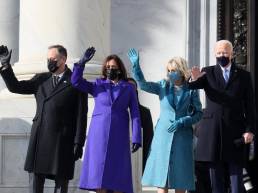Can small candidates have major consequences in the outcome of the US presidential elections? In the case of Perot, Nader, and Stein, yes they can.
João de Almeida Dias makes three stops in time in the Observador’s newsletter ‘Special American Elections’ of this week. The first stop happens in 1992, the year George W. Bush sought re-election, but billionaire Ross Perot twined his plans by capturing an important slice of the electorate with his anti-NAFTA speech. In the end, the Democratic nominee, Bill Clinton, was the one who reached the presidency.
The second stop comes in 2000 with Green Party candidate Ralph Nader, who led to major consequences in this year’s election, in which Republican George W. Bush won and Democrat Al Gore was defeated. In essence, Nader gained media attention for his left-wing agenda, compared to the more centrist Democratic candidate, Al Gore. Very similar in their political agendas, Al Gore and George W. Bush had very close results in the elections, with Florida untying.
The third stop is in 2016 with Jill Stein, also of the Green Party. In the three swing states that made all the difference in the 2016 election: Pennsylvania, Wisconsin, and Michigan, the votes Jill Stein received in each of them were greater than the difference between the Republican and the Democrat. So if Jill Stein’s voters had voted for Hillary Clinton, Trump wouldn’t have made it to the White House.
And for 2020? Can any candidate from a small party change the results? Find out all the details here and subscribe to the newsletter.

Related Posts
January 25, 2021
Observador Newsletter: What can a President do in it’s first hour in office? Interview with Jim Costa
The power and limitations of governing…
January 21, 2021
‘América Vinte Vinte’: Biden’s inaugural adress and first decisions
This week, Nuno Severiano Teixeira,…
January 18, 2021
Observador Newsletter: Why does the inauguration matter?
The importance of the new president's…


